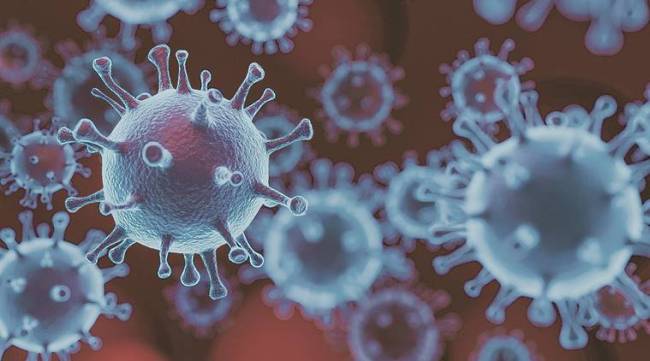Opinion Mankind and the virus
Covid-19 is at least in part a result of the Anthropocene. It is a wake-up call to alter how we interact with nature.

 The novel coronavirus is widely believed to have originated in a wild mammal (bat or pangolin) that likely transmitted it to humans in the Wuhan seafood and wild animal market.
The novel coronavirus is widely believed to have originated in a wild mammal (bat or pangolin) that likely transmitted it to humans in the Wuhan seafood and wild animal market.
Written by Dipayan Pal
Nobel laureate Joshua Lederberg said that “the single biggest threat to man’s continued dominance on the planet is the virus.” Our present predicament resonates the same. SARS-CoV2, the virus that causes COVID-19 — has caused havoc on the human world. It has led to a rethinking and need to adapt in nearly every part of life. Apart from the pandemic, a series of disasters – from to America’s deadliest wildfire to Cyclone Amphan – make it clear there are forces that we cannot tame. The pandemic has made one thing clear: The Anthropocene is not as clear cut as we think.
The term Anthropocene was popularised by Nobel Laureate, Paul Crutzen, to describe the current epoch in which human activities have profoundly altered the planet’s geological, hydrological, bio-geochemical and atmospheric cycles. Some scholars trace the epoch back to the Neolithic Revolution, while others to the beginning of capitalism and the Industrial Revolution. In essence, the Anthropocene is a matrix in which the development trajectory of humanity and the natural world intersect, with one altering the other.
The novel coronavirus is widely believed to have originated in a wild mammal (bat or pangolin) that likely transmitted it to humans in the Wuhan seafood and wild animal market. This passage of pathogens from wild animals to humans is called ‘zoonosis’, which is facilitated by the progressive destabilisation and disruption of ecosystems.
The coronavirus appears to be what is known as a Latourian hybrid — an object belonging to both culture and nature, a product of the Anthropocene. Humanity is changing the global ecosystem through radioactivity from nuclear tests, soil nitrogenation, climate change.
We all draw different lessons from a crisis. Nigerian philosopher Bayo Akomolafe is right when he says that this crisis strips away all delusional confidence in the modern notions of history, progress, humanity, knowledge, time, secularism, and our tendency to take life itself for granted. The pandemic has also led to insights on ecological sustainability in the Anthropocene.
Economic globalisation has not brought universal prosperity but massive ecological devastation, social inequality and disruption. But Covid has led to us thinking in a species-wide manner.
The change in lifestyle and consumption during the crisis has the planet closer to the 1.5°C Paris Agreement goal than ever considered to be possible. People around the world have quickly changed their routines in response to the different restrictions imposed, leading to lesser air pollution. The fact, then, is that we can adapt when we need to. This reorientation, the capacity for change needs to be adapted to in the future, if it is to be a sustainable one.
While scientists are racing to develop a vaccine, the real preventative for the future requires more. A more ethical approach to development across the board is needed. Wildlife and habitat destruction need to be addressed. Unless we resolve to preserve the many processes, species and biodiversity that make up the earth, we may not survive more than a generation or two. Economic interest must supersede environmental ones, and geoethics should guide us to our moral responsibility, to re-orientate the relationship between humanity and nature altered in the Anthropocene.
In the post-COVID19 Anthropocene, we need to ensure that global environmental mechanisms need to go hand in hand with individual responsibility.
The writer, 21, is a final-year undergraduate student of history at Hans Raj College, Delhi University and former Student Fellow (elected) of Royal Anthropological Institute, UK


